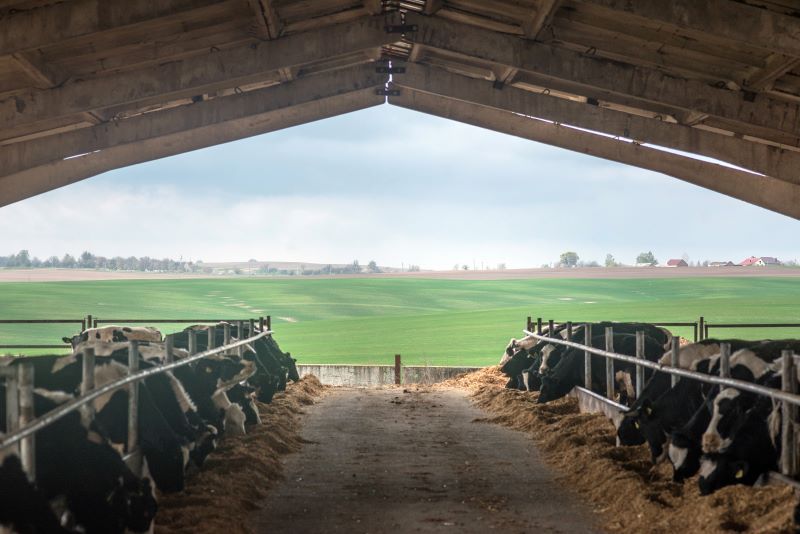What is the Environmental Impact of Meat Production?
- Categories:
- Climate Change
- Food

Deforestation for industrial farming
Space must be cleared to farm cattle, which means that large swathes of forests like the Amazon rainforest are being destroyed in order to make way for industrial farms. Some 80% of global deforestation is a result of agricultural production, and, when forests are destroyed, carbon dioxide is released into the atmosphere which further contributes to global warming.
The rainforests are essential for absorbing carbon and combatting climate change, but instead there are concerns that giant forests like the Amazon are quickly reaching a tipping point where they can no longer serve this purpose.
The problem with methane emissions
About a third of human-caused methane emissions come from livestock, mostly from beef and dairy cattle, and cows and other farm animals produce about 14% of human-induced climate emissions.
Although methane breaks down more quickly in the atmosphere, it is a highly potent greenhouse gas compared to carbon dioxide. While natural sources also release methane, human activity has greatly increased the amount of methane being produced, which is accelerating the climate crisis.
Plus, although you might imagine that meat production would be slowing down in recent years as warnings about our diets and the environment take hold, it is actually accelerating year on year at the moment.
The opportunity to reduce methane emissions
Reducing methane emissions is becoming a massive priority to reduce global heating – which means cutting down on meat production.
While methane emissions are second to carbon dioxide emissions when it comes to global warming, the UN has identified a significant opportunity to tackle them. Reducing methane emissions was touted as one of the most immediate opportunities to slow global heating ahead of COP26.
Many countries have set net-zero targets for future years, but it is clear that we also need to take immediate action, and the UN believes that tackling methane emissions could help to reduce global heating in the short term while other actions are put into place.
As Ursula von der Leyen, the European Commission president, said: “Cutting back on methane emissions is one of the most effective things we can do to reduce near-term global warming and keep to 1.5°C”.
Recommendations to reduce methane emissions from agriculture include:
Alternative feeds for cattle
The UNEP has suggested that farmers provide animals with more nutritious feed so that they are larger, healthier and more productive. Scientists are also experimenting with alternative types of feed to reduce the methane produced by cows and looking at ways to manage manure more efficiently by covering it, composting it, or using it to produce biogas.
Reducing food loss and waste
Food waste is a big driver of climate change, so reducing this as much as possible will be vital. If there is less demand for meat products as people are buying and consuming them more carefully, meat production overall will be reduced.
Cutting meat and dairy consumption
On a similar note, we need to encourage people to consume less meat and dairy overall in order to scale back on the farming of livestock that produces these emissions. To encourage people to eat plant-based more often, fruit and vegetables should become cheaper and more readily available.
Signs of action are appearing when it comes to meat production – during COP26, for example, 105 countries, including the US, Japan and Canada, signed a pledge to cut methane emissions by 30%. While much of the methane tackled comes from fossil fuels, countries should still shine a spotlight on livestock farming as a significant source of methane, and ultimately make some significant changes to this industry.
Hopefully this brief guide to the environmental impact of meat production has been informative. If you want to support charities and projects that are working to tackle climate change and its effects, you should try SearchScene – our charitable search engine that donates 95% of profits.










